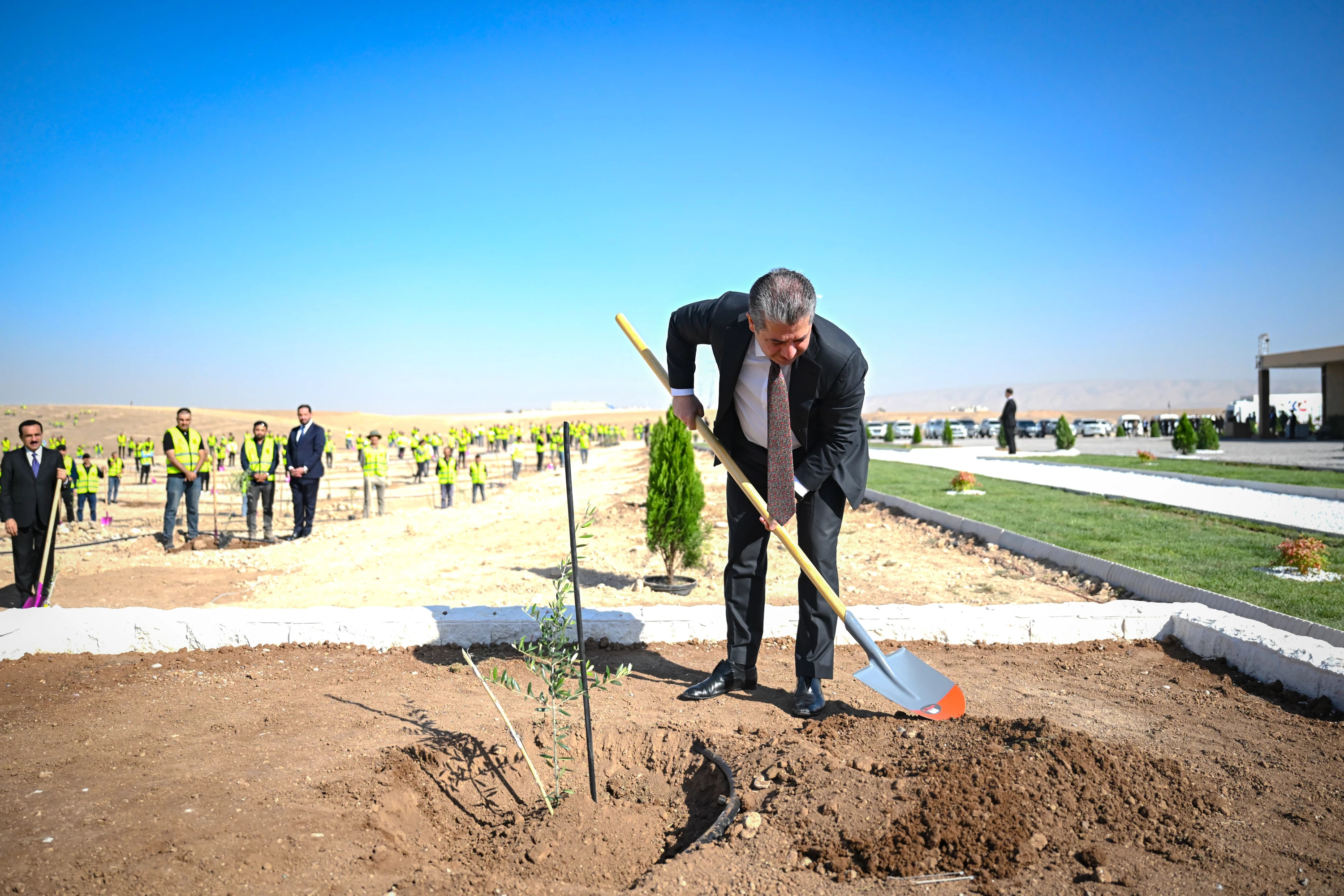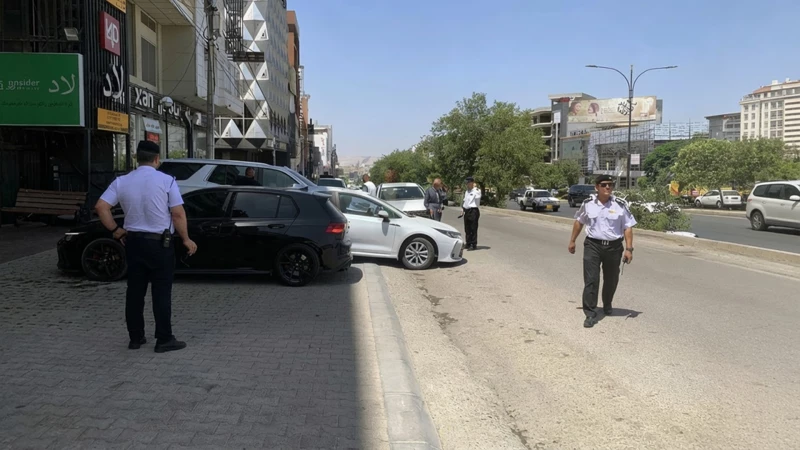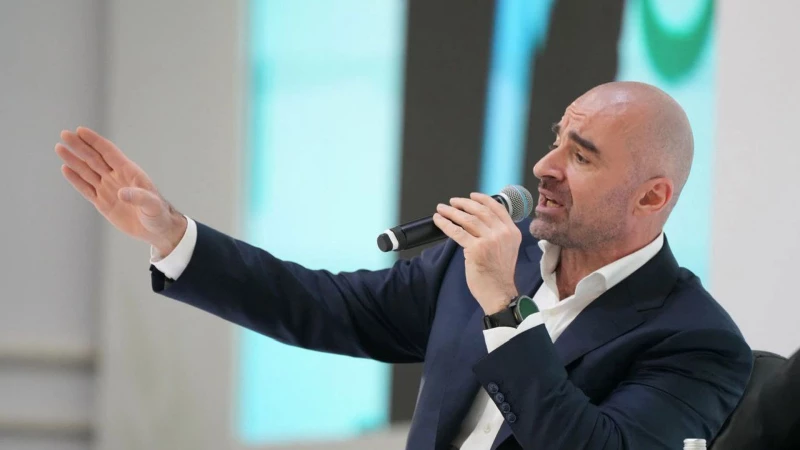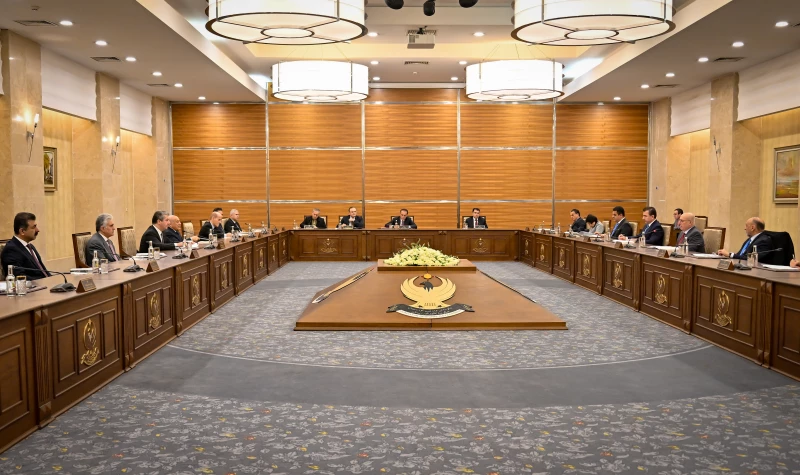ERBIL, Kurdistan Region of Iraq – Kurdistan Region Prime Minister Masrour Barzani inaugurated on Thursday the Erbil Green Belt project, a major initiative aimed at preserving the environment that includes the planting of millions of trees.
“I am happy to be here with you on this important and historic day, which is crucial for the coming generations,” Barzani said during his speech, hailing the project as essential for the long-term environmental stability of the Kurdistan Region.
The Erbil Green Belt is a major KRG environmental initiative to expand green spaces and protect the city from unchecked urban development.
Barzani further lauded the project, asserting that it will provide major benefits for the local agriculture sector and will greatly contribute to removing harmful gases from the air.
“The degradation of the environment not only negatively impacts the Kurdistan Region, but Iraq and outside the country too,” he asserted. “We want to take action now before it is too late.”
During his speech, Barzani called for assistance from foreign countries to preserve the environment. He also expressed Erbil's readiness to help the rest of Iraq with environmental initiatives.
#BREAKING: Speaking to reporters after inaugurating the Erbil Green Belt project, Kurdistan Region PM Masrour Barzani said, "We have always exerted all our efforts to help all of Iraq," adding that Erbil stands ready to help Baghdad in protecting the environment pic.twitter.com/8lCUPSclZ8
— The New Region (@thenewregion) October 30, 2025
Hemn Sayyid Morad, the director of Erbil’s agricultural department, told The New Region on Wednesday that “no residential projects are permitted to be built within the belt. Furthermore, several permits that were previously issued have been revoked.”
The KRG stated that the project will involve planting millions of trees and constructing more than ten water retention ponds. Stretching more than two kilometers behind the 150-meter ring road, the belt is designed to boost afforestation, address climate change, and safeguard agricultural land from being converted into commercial or residential use.
Dilshad Hirani, head of Erbil’s environment office, told The New Region that the greenery ratio in Erbil “will exceed international standards” once the project is completed.
Once completed, the belt is expected to remove up to 210,000 tons of carbon dioxide per year, according to the KRG. It will also curb harmful pollutants and serve as a barrier against desertification, dust storms, and rising temperatures.
The project is also set to create hundreds of jobs, primarily in agriculture.



 Facebook
Facebook
 LinkedIn
LinkedIn
 Telegram
Telegram
 X
X


